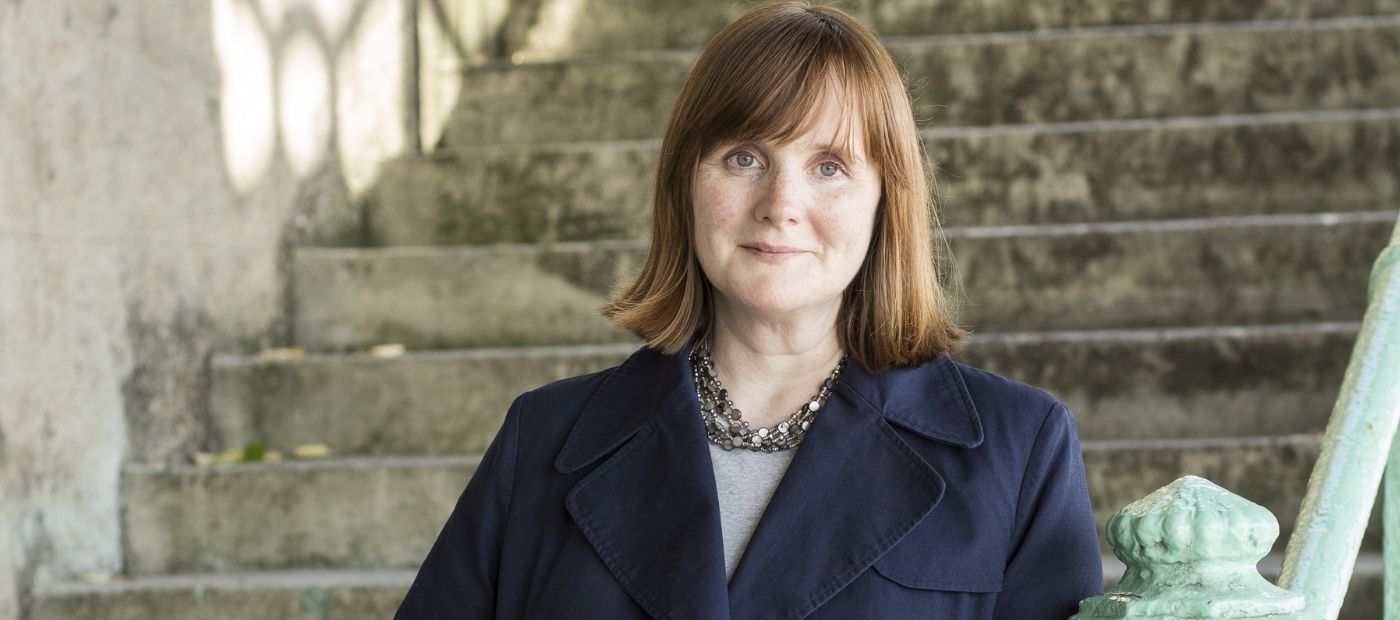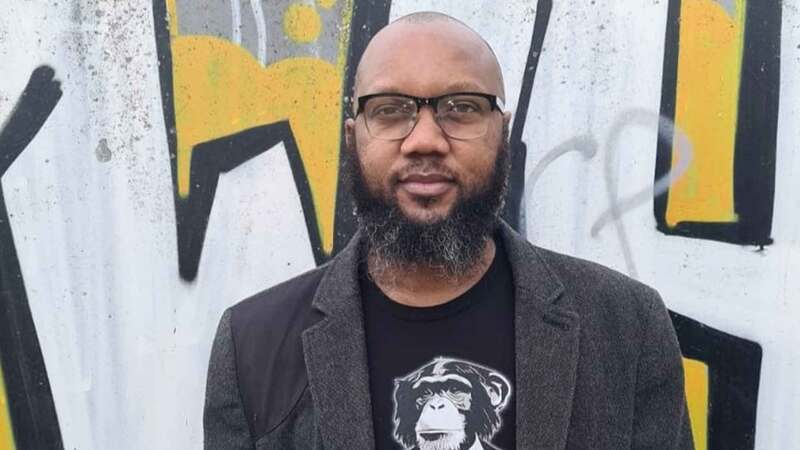You are viewing your 1 free article this month. Login to read more articles.
Sarah Hilary | 'I wanted to capture that sense of divided loyalties'
Sarah Hilary’s first book after her Marnie Rome series is a standalone slice of modern Gothic
Sarah Hilary is the author of the excellent Marnie Rome series, in which DI Rome (possessor of the requisite tortured past, in Marnie’s case parents murdered by her foster brother) investigates various brutal crimes around a brilliantly realised London. But after writing the sixth novel in the series, Never Be Broken, Hilary decided it was time to give Marnie and her sidekick DS Noah Jake a break.
“It was much more difficult to write than the other ones,” says Hilary of Never Be Broken, “partly because of the shifting political atmosphere after the Brexit vote”. Hilary used to live in London, but moved out more than 20 years ago. “It was so obvious to me that I couldn’t write a book that would be truthful to Noah’s character in particular, with him being Black and a policeman in London, without referencing the changed feeling in London,” she says. “Noah wasn’t put into the books so I could talk about racism or homophobia [he is gay] in the police force. But I knew I had to address these issues—I couldn’t just pretend that no one’s life had changed, if these books are meant to be set in contemporary London.”
I wanted to capture that sense of divided loyalties, and who can you trust in the house. Who’s telling the truth? Is anybody telling the truth? What is truth? Is it just everybody’s individual perspective that’s made up of their experiences?
She managed it: Never Be Broken, dealing with the murders of London’s “lost” children, is another perceptive, intelligent, gritty outing for her characters. But she wanted to try something new once she was done. “It seemed like a good point to take a break from the series,” she says. “I’m not ruling out going back to it ever again. But it seemed like a natural place to stop.”
The germ of the novel that would become her first standalone, Fragile (Pan), came to her when watching the Harold Pinter film “The Servant”, starring Dirk Bogarde. “It’s about the power balance in this funny little house, and the servant who ends up completely inverting the power,” she says. Then she embarked on a semi-regular re-read of Daphne du Maurier’s Rebecca. “I love the way that book changes, depending on how old you are, where you are in life, when you read it,” she says. “I remember reading it first in the summer when I was 11, and being completely in love with Max de Winter, and thinking that the heroine was really wonderful. I read it again in my twenties and I found her so annoying. In my thirties, I was like, ‘Oh, Rebecca is so cool. She doesn’t compromise on anything.’ And I re-read it again a couple of years ago, and I thought, ‘Isn’t it interesting how we all think the second Mrs de Winter is this timid little thing, such a little victim?’ But actually, she doesn’t care that Max murdered, as she believed at the time, a pregnant woman. I really like that dichotomy of somebody who is presented as being frail and fragile, but actually, is she? I love the slipperiness of that.”
Fragile, then, is the story of Nell, a former foster child who has seen a lot in her young life, and who wrangles her way into a job as a housekeeper at the mysterious Starling Villas. But what is her new employer Robin Wilder hiding from her, and what lies has Nell told about her own past? Dreamy and atmospheric, Fragile is a slice of modern Gothic which plays on du Maurier tropes to create a very dark contemporary fairytale.
“I wanted to capture that sense of divided loyalties, and who can you trust in the house. Who’s telling the truth? Is anybody telling the truth? What is truth? Is it just everybody’s individual perspective that’s made up of their experiences?” asks Hilary. “Nell has had this strange and cruel upbringing. On the one hand, it’s made her quite fragile and vulnerable. And on the other hand, it’s made her really quite dangerous, because she doesn’t know what normal behaviour is like—she’s never been taught it. She doesn’t know what love looks like, because she’s never received it. That really fascinated me, the idea of writing a character like that, who could go any way, because they have no proper frame of reference.”
The first draft flew out of her; Hilary doesn’t plot in advance, so writes quickly to keep up the momentum. “You have to write 2,000 words a day minimum if you haven’t got a plot laid out beforehand.” But she then worked on it for around a year, with her new publisher Pan Macmillan, before it was ready. Hilary had been with Headline for her series, but changed publisher for her first standalone—although she returned to her first editor, Vicki Mellor, who is now publishing director at Pan Mac.
“It needed a lot of rewriting. The police procedural has a built-in formula: the discovery of a crime; the solving of the crime. Whereas the crime in Fragile, such as it is, happened in the past, off the page. In that sense, it’s not like the kind of crime fiction I was writing before. It’s very psychological,” she says. “I thought it was going to be easier than a police procedural because I wouldn’t have to keep stopping to look up the rules and check statistics, I could just write this story from my imagination. And I thought it didn’t need to have this rigid structure. But of course it needs to have a rigid structure—every book needs that, otherwise it’s not a proper story.”
Hilary, who has just returned to her home in Herefordshire from the Bloody Scotland festival—“it was amazing, my first live event since all of this”—has been writing “ever since I could hold a pen, really”. Full-time work on a magazine for the Royal Navy in her twenties left little time, however, and it wasn’t until her son was born that she got back into it. She started to win prizes for her flash fiction and her short fiction, while “trying to pursue the agent of my dreams”, David Higham Associates’ Jane Gregory, with full-length manuscripts. When Gregory finally signed her, she was in her late thirties, working part-time as a bookseller in Foyles in Bristol.
She would drop her son at school, then get a cup of takeaway coffee, walking around Bristol harbour while working out who Marnie, the fierce, brilliant, damaged detective with her murdered parents, and Noah, her sidekick, would be. “There’s that cliché, isn’t there, in crime fiction: the tortured detective who goes home at the end of the day to his caravan and drinks himself into a coma. So that’s really why I created Noah—he’s really happy,” she says. “What I was trying to do in the series was flip it so that when by the time you get to Never Be Broken, Marnie’s kind of mended, she’s laid some of her demons to rest, and she’s come to a place of peace. And Noah, who started in a place of peace, has come to a place of brokenness.”
These themes, of strength and weakness and how they manifest, are key for Hilary, explored both in Fragile and her series novels. “The way in which Marnie becomes stronger is by becoming weaker, in a funny kind of way. She exposes herself to emotion, she shows her vulnerability to the people, and she opens herself up to being hurt,” she says. “She was strong, but she was very brittle in [the first series title] Someone Else’s Skin. If you dropped her, she’d have shattered. By the time you get to Never Be Broken, she’s much softer, but she’s actually much stronger. What strength is, and what weakness is, is the theme that I think I’m probably going to be writing about in all my books.”









